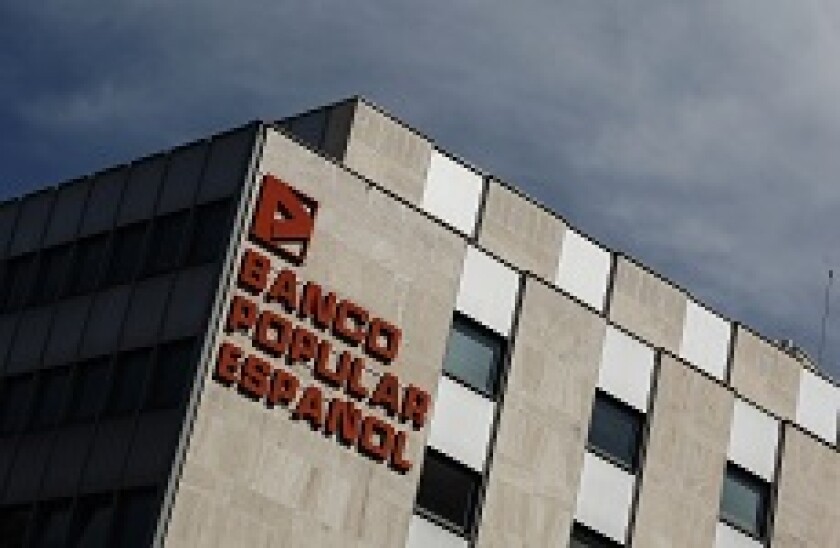The Spanish financial institution pulled the short straw this week when it became the first firm authorities have resolved according to the terms the Bank Recovery and Resolution Directive (BRRD).
It has taken a year and a half, but it was a long time coming. In recent months Brussels had faced growing criticism for the slow and clumsy way in which it was handling other ailing banks in Europe.
But the Single Resolution Board showed speed and grace on Wednesday, wiping all of Popular’s regulatory capital out and helping to secure its sale to Santander in under 24 hours.
We could quibble about the finer points of the regulatory process. Why was the bank not treated earlier, as a going concern? And wasn’t it convenient that Popular was valued at the exact amount of its equity and subordinated bonds, plus €1.
But the essentials are there.
Bondholders have for the first time under BRRD absorbed losses in a failing bank, without authorities using a single cent of public money to ease the pain.
Equity and additional tier one bonds were written down first, as they were meant to, and tier two was close behind.
Following the waterfall of losses downwards it is hardly impossible to see how senior bondholders could also have been on the chopping block, had Popular’s sale required a higher valuation.
We have seen the future of bank resolutions in Europe, and there is plenty to be pleased about.

